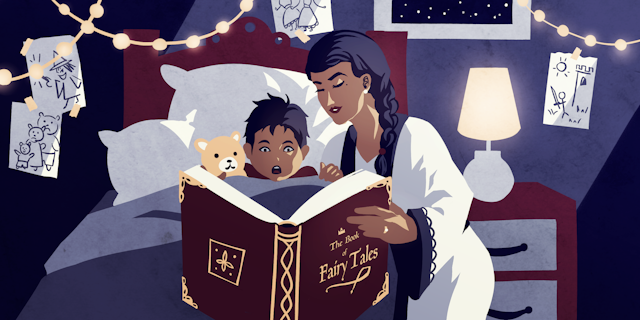Originally for adults, many fairy tales can be brutal, violent, sexual and laden with taboo. When the earliest recorded versions were made by collectors such as the Brothers Grimm, the adult content was maintained. But as time progressed, the tales became diluted, child-friendly and more benign.
Adults consciously and unconsciously continue to tell them today, despite advances in logic, science and technology. It’s as if there is something ingrained in us – something we cannot suppress – that compels us to interpret the world around us through the lens of such tales.
That’s what we’re exploring on the latest episode of Essays On Air, the audio version of our Friday essay series. Today, Marguerite Johnson, Professor of Classics at the University of Newcastle, is reading her essay Why grown-ups still need fairy tales.
Join us as we read to you here at Essays On Air, a podcast from The Conversation.
Find us and subscribe in Apple Podcasts, in Pocket Casts or wherever you get your podcasts.
Additional audio
Snow by David Szesztay
Mourning Song by Kevin MacLeod
Jack and the Beanstalk by UB Iwerks
Cinderella (1950), produced by Walt Disney
Candle in the Wind/Goodbye England’s Rose by Elton John
P. I. Tchaikovsky: Dance of the Sugar Plum Fairy, performed by Kevin MacLeod from Free Music Archive.
This episode was recorded by Eddie O'Reilly and edited by Jenni Henderson. Illustration by Marcella Cheng.

